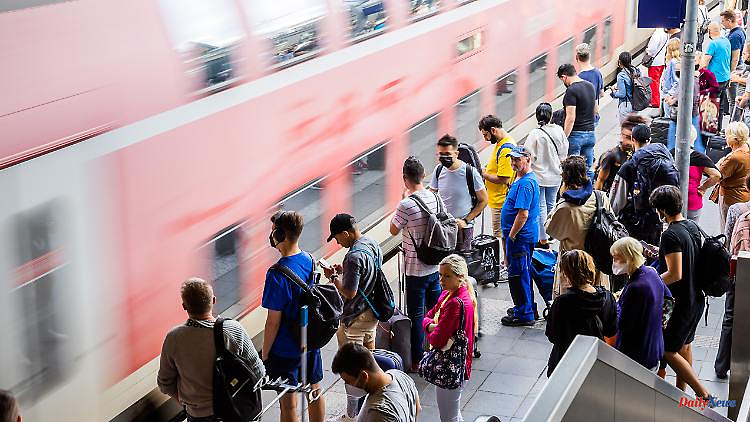Because of the discounted train tickets, many more people use the train in June, July and August than usual. As a statistical evaluation shows, the number of passengers increased significantly this year, regardless of the 9-euro ticket.
After the expiry of the 9-euro ticket for Germany-wide regional transport, the volume of rail travel is back to the level before the corona pandemic. This is the result of an experimental special evaluation of aggregated and anonymized mobile phone data by the Federal Statistical Office. During the validity period of the cheap ticket, the volume of travel had increased significantly.
According to the evaluation, people undertook significantly more train journeys over distances of 30 kilometers or more in the months of June, July and August. On average, the number of rail trips recorded daily was 44 percent higher. The increase was highest at 57 percent for rail journeys between 100 and 300 kilometers.
According to the statisticians, most of the additional train journeys were made at the weekend. From June to August, the number of rail journeys of more than 30 kilometers during the week was almost a quarter higher than in 2019, while doubling at weekends.
However, mobility apparently also increased significantly independently of the 9-euro ticket in 2022: According to the Federal Statistical Office, the number of long-distance rail journeys of 300 kilometers or more had been well above the level before the pandemic since the beginning of April. In road traffic, the number of journeys from June to August remained constant compared to 2019 and only increased slightly on weekends.
According to the plans of the federal government, there should be a nationwide local transport ticket for 49 to 69 euros a month. The federal government wants to provide 1.5 billion euros a year for this - if the federal states make at least the same amount available. Transport Minister Volker Wissing promised a successor by early 2023. However, there is headwind from the federal states because of the financing.












